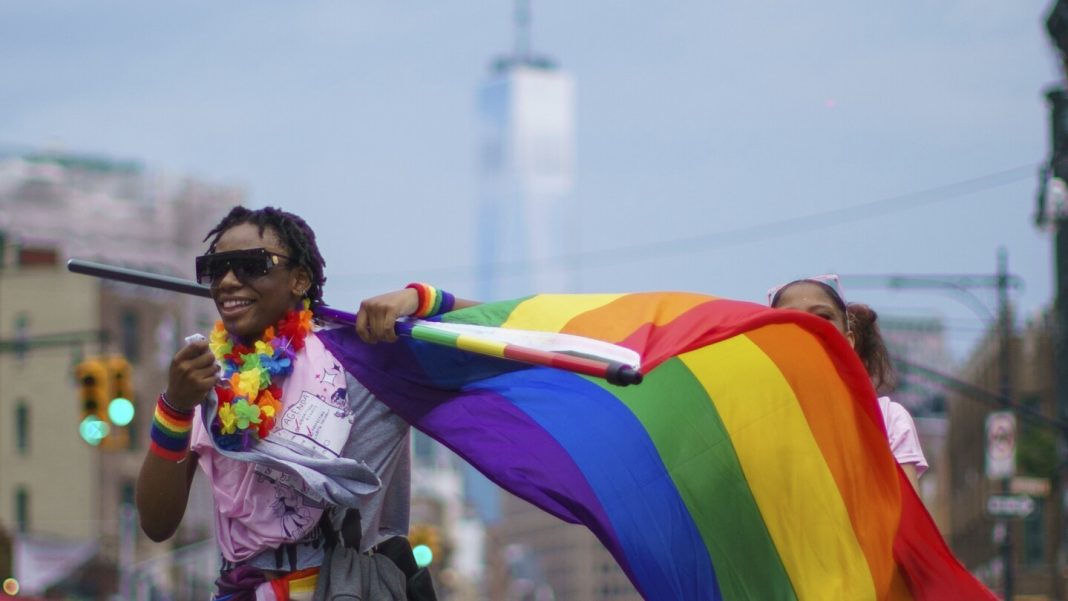Pride Month, the worldwide celebration of LGBTQ+ culture and rights, kicks off Saturday with events around the globe.
But this year’s festivities in the U.S. will unfold against a backdrop of dozens of new state laws targeting LGBTQ+ rights, particularly transgender young people.
Here are things to know about the celebrations and the politics around them.
The monthlong global celebration began with Gay Pride Week in late June 1970, a public celebration that marked the first anniversary of the violent police raid at New York’s Stonewall Inn, a gay bar.
At a time when LGBTQ+ people largely kept their identity or orientation quiet, the June 28, 1969, raid sparked a series of protests and catalyzed the movement for rights.
The first pride week featured marches in Chicago, Los Angeles, New York and San Francisco, and it has grown ever since. Some events fall outside of June: Tokyo’s Rainbow Pride was in April and Rio de Janeiro has a major event in November.
In 1999, President Bill Clinton proclaimed June as Gay and Lesbian Pride Month.
Pride’s hallmark rainbow-laden parades and festivals celebrate the progress the LGBTQ+ civil rights movement has made.
In the U.S. in April, a federal appeals court ruled North Carolina and West Virginia’s refusal to cover certain health care for transgender people with government-sponsored insurance is discriminatory.
In one compromise in March, a settlement of legal challenges to a Florida law critics called “Don’t Say Gay” clarifies that teachers can have pictures on their desks of their same-sex partners and books with LGBTQ+ themes. It also says books with LGBTQ+ characters and themes can remain in campus libraries and gay-straight alliance chapters at schools need not be forced underground.
Greece this year legalized same-sex marriage, one of three dozen nations around the world to do so, and a similar law approved in Estonia in June 2023 took effect this year.
Rights have been lost around the world, including heavy prison sentences for gay and transgender people in Iraq and the death penalty for “aggravated homosexuality” in Uganda. More than 60 countries have anti-LGBTQ+ laws, advocates say.
Tightening of those laws has contributed to the flow of people from Africa and the Middle East seeking asylum in Europe.
In recent years, Republican-controlled U.S. states have been adopting policies that target LGBTQ+ people, and particularly transgender people, in various ways.
Twenty-five states now have laws banning gender-affirming care for transgender minors. Some states have taken other actions, with laws or policies primarily keeping transgender girls and women out of bathrooms and sports competitions that align with their gender.
GOP state attorneys general have challenged a federal regulation, set to take effect in August, that would ban the bathroom bans at schools. There also have been efforts to ban or regulate drag performances.
Most of the policies are facing legal challenges.
Since Roe v. Wade was overturned in 2022, leading to restrictive abortion laws in most GOP-controlled states, LGBTQ+ advocates are worried about losing ground too, said Kevin Jennings, CEO of nonprofit civil rights organization Lambda Legal. On the eve of Pride, the organization announced a $180 million fundraising goal for more lawyers to challenge anti-LGBTQ+ laws.
Progress such as the 2015 Supreme Court ruling that legalized same-sex marriage nationwide could be lost without political and legal vigilance, Jennings said.
“Our community looks at what happened to reproductive rights thanks to the Dobbs decision two years ago and has enormous anxiety over whether we’re about to have a massive rollback of what we’ve gained in the 55 years since Stonewall,” Jennings said.




